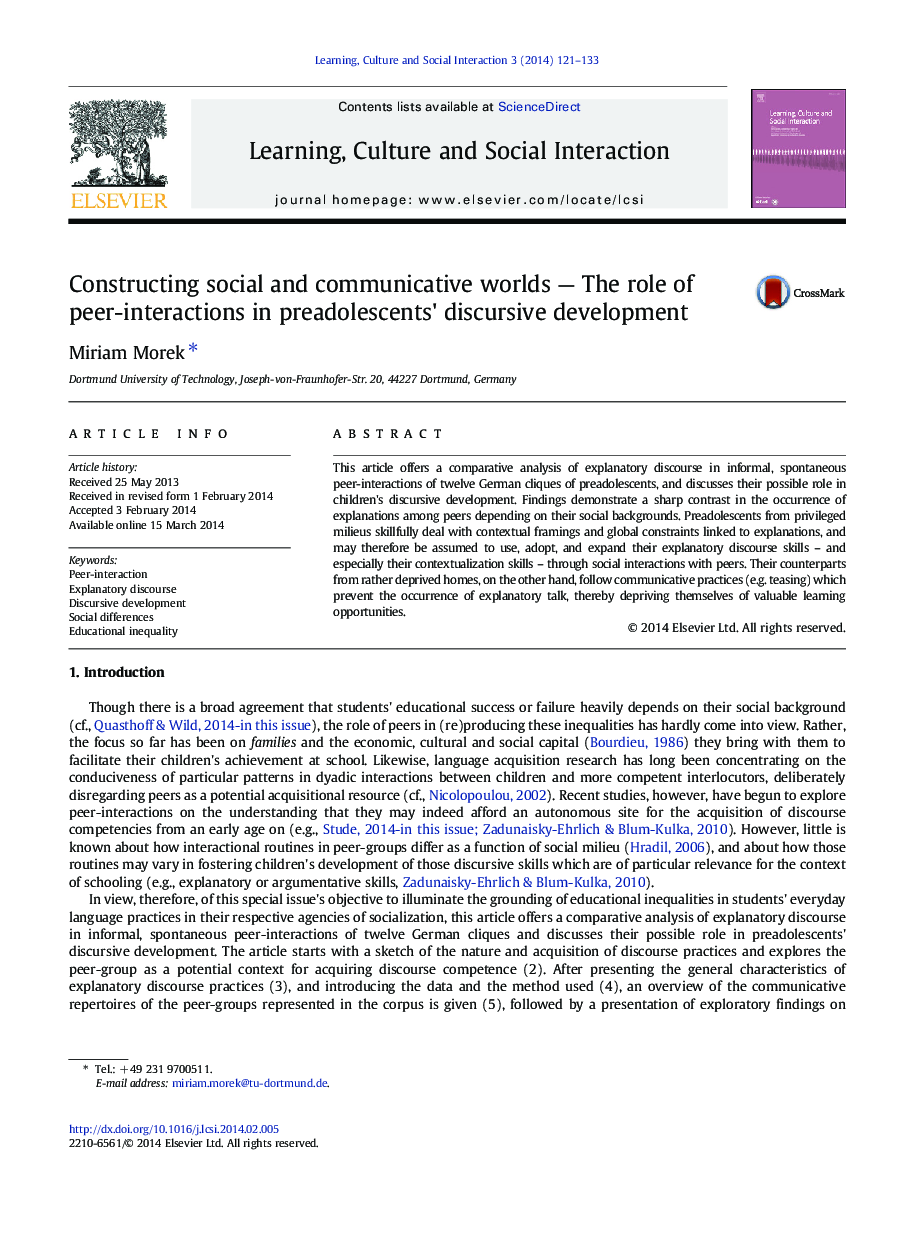| Article ID | Journal | Published Year | Pages | File Type |
|---|---|---|---|---|
| 364374 | Learning, Culture and Social Interaction | 2014 | 13 Pages |
This article offers a comparative analysis of explanatory discourse in informal, spontaneous peer-interactions of twelve German cliques of preadolescents, and discusses their possible role in children's discursive development. Findings demonstrate a sharp contrast in the occurrence of explanations among peers depending on their social backgrounds. Preadolescents from privileged milieus skillfully deal with contextual framings and global constraints linked to explanations, and may therefore be assumed to use, adopt, and expand their explanatory discourse skills – and especially their contextualization skills – through social interactions with peers. Their counterparts from rather deprived homes, on the other hand, follow communicative practices (e.g. teasing) which prevent the occurrence of explanatory talk, thereby depriving themselves of valuable learning opportunities.
